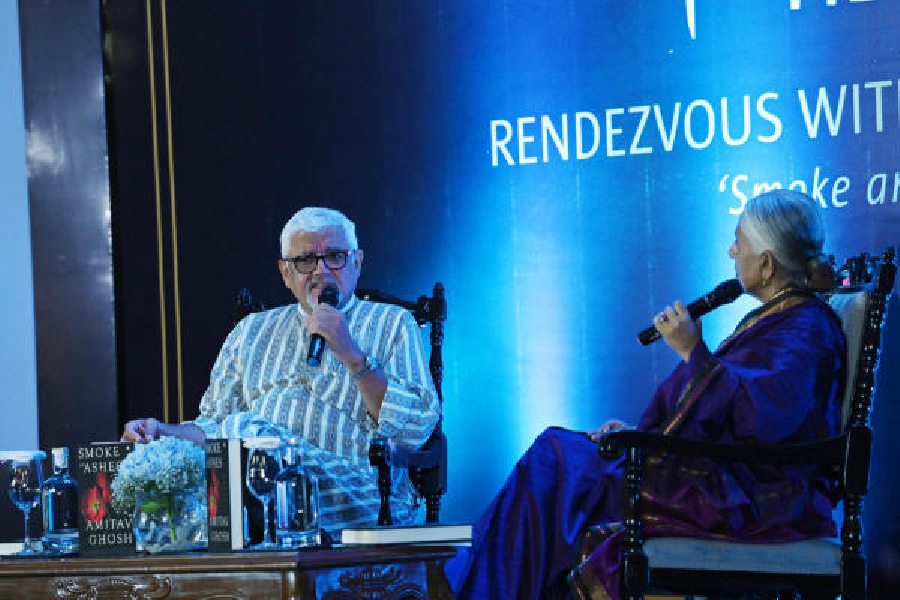A drug that can widen the divisions in society is also playing a role in the Manipur crisis, author Amitav Ghosh said on Saturday.
“Opium has this kind of a multiplier effect where it can insert itself into pre-existing fissures and tensions in society and greatly exacerbate them. I think this is what we have seen in Manipur now,” said Ghosh, in town for the launch of his new book, Smoke and Ashes.
The book, sourced from the vast research Ghosh undertook for his Ibis trilogy, explores the effect the opium trade has had on global history and how opium continues to impact modern lives.
Ghosh discussed the book with academic Supriya Chaudhuri. The evening was part of the Tata Steel Kolkata Literary Meet.
Chaudhuri asked Ghosh to reflect on similarities between the opioid crisis in the US, which the author writes about in his book, and the crisis in two Indian states with international borders.
The opioid crisis refers to the surge in deaths because of an overdose of opioids.
“There is a similar crisis that confronts us in India today. Particularly in two states that have borders with other countries. Punjab, on the one hand, and if you think of the present crisis in Manipur. There is also an element of drug smuggling that is part of the reason why this crisis has been created.
“Is there something you would like to say about how hopeful do you feel that we would be able to contain these forces that play havoc with our populations, forces that are much stronger than all kinds of state powers,” asked Chaudhuri.
Ghosh said opium played an equally impactful role in relation to American capitalism as it did in India.
“In relation to opium, you have to think of some kind of intelligence at work. Because what happens is that opium creates these symmetries. The American opioid crisis of today is in many ways uncannily similar to what the Chinese were facing in the nineteenth century,” he said.
Opium brings huge money, which in turn brings a lot of guns, said Ghosh.
“In Manipur, every community is in some way involved in this trade. What opium does is that it makes very large amounts of money available? With those sums of money come guns, and weapons," Ghosh said.
“I have been following the Manipur crisis. Now we find out that there have actually been pitched battles. It is not like the riots that we are accustomed to. But pitched battles, with heavy weaponry, going on between communities there. How this is going to be stopped or reversed, I don’t know,” he said.
The conflict in Manipur has so far killed over 180 people and displaced tens of thousands of people.
